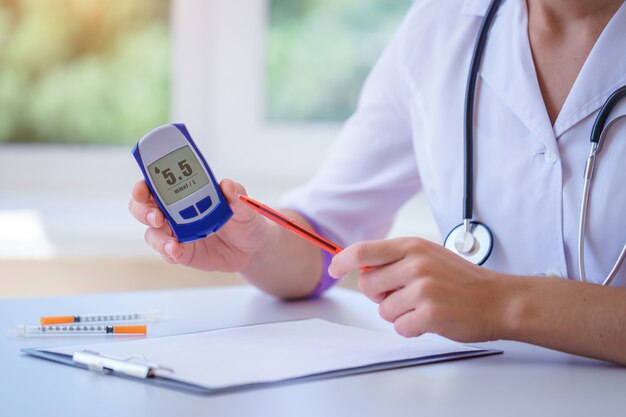Consult Healthcare Professionals for Choosing the Right Blood Glucose Monitor
Selecting the appropriate blood glucose monitor is a critical decision for individuals managing diabetes.
Engaging with healthcare professionals is essential in this process, as they possess the expertise and knowledge to guide patients toward the best options tailored to their unique health needs.
This article explores the importance of consulting healthcare providers when choosing a blood glucose monitor, the aspects they can assist with, and how this collaboration can lead to better diabetes management.
1. Understanding Personal Health Needs
Healthcare professionals can provide invaluable insights into the specific health requirements of individuals.
Every patient’s diabetes management plan can vary based on factors such as age, health history, lifestyle, and coexisting medical conditions.
By discussing these elements with a healthcare provider, patients can gain clarity on the monitor features best suited to their situation, whether that be advanced data management capabilities or simplified testing procedures.
2. Evaluating Features and Specifications
With the multitude of blood glucose monitors available, it can be overwhelming to determine which one is most suitable.
Healthcare professionals can help patients assess the essential features required for effective management—such as accuracy, ease of use, connectivity options, and memory capabilities.
This evaluation ensures that patients invest in a device that will not only fulfill their monitoring needs but also align with their lifestyle.
3. Addressing Concerns and Preferences
Conversations with healthcare providers can also address any concerns patients may have regarding particular devices.
Some patients might feel anxious about using technology or may have questions about the reliability of certain brands.
Healthcare professionals can provide reassurance, share patient experiences, and discuss the pros and cons of different monitors.
This dialogue helps patients feel more confident in their choice.
4. Coordinating a Comprehensive Diabetes Care Plan
Choosing a blood glucose monitor should not occur in isolation. Healthcare professionals play a vital role in coordinating a holistic diabetes care plan. They can recommend a monitor compatible with other management tools, such as insulin pumps or continuous glucose monitors (CGMs). By synchronizing all aspects of care, healthcare providers can help enhance glucose control and improve overall health outcomes.
5. Training and Education
Once a blood glucose monitor has been selected, healthcare professionals are instrumental in providing training on how to use the device correctly.
They can demonstrate testing techniques, interpreting results, and troubleshooting common issues.
Additionally, they can educate patients on the importance of regular monitoring, highlighting how to maintain their devices and when to seek further assistance if needed.
6. Follow-Up and Ongoing Support
The relationship between patients and healthcare professionals shouldn’t end after selecting a blood glucose monitor.
Regular follow-up appointments are crucial for ongoing support and adjustments to diabetes management plans.
During these visits, patients can discuss their experiences with their monitors, address any issues they’ve encountered, and potentially reassess their choice of device based on changes in their health status.
Conclusion
Consulting healthcare professionals while choosing a blood glucose monitor is a vital step in managing diabetes effectively.
Their expertise can help navigate the intricate landscape of available monitors, ensuring patients select a device that aligns with their individual health needs and lifestyle.
Through collaborative discussions, education, and ongoing support, healthcare providers can empower patients to take charge of their diabetes management and enhance their overall quality of life.
